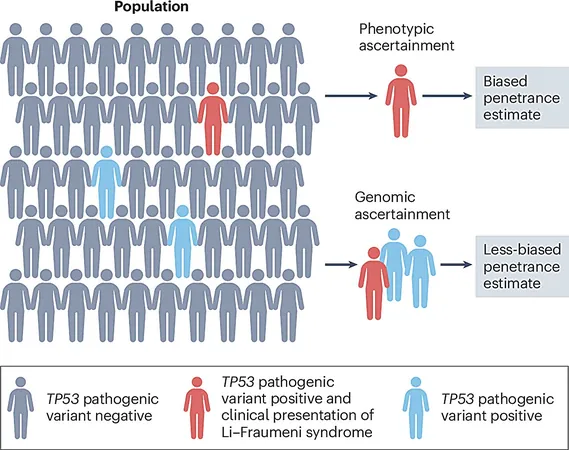
Unraveling the Genetic Mysteries of Childhood and Adolescent Cancers: 40 Years of Groundbreaking Research
2024-12-30
Author: Rajesh
Cancer is often viewed as a disease that primarily affects adults, but it’s important to recognize its impact on children and adolescents. Although childhood and adolescent cancers are rare, they represent one of the leading causes of death within these age groups. Survivors frequently face chronic health issues that can lead to increased rates of morbidity and mortality later in life.
One of the most significant risk factors identified in the onset of cancer during childhood is a genetic predisposition. Certain genetic variants associated with specific diseases can significantly heighten the risk of developing cancer. As Prof. Dr. Christian Kratz, an esteemed expert in Pediatric Hematology and Oncology at Hannover Medical School, notes, “Understanding the causes of cancer in children and adolescents is essential for enhancing treatment methods, facilitating earlier detection, and ultimately working towards prevention.”
Over the past four decades, researchers have illuminated the complex hereditary landscape of malignant diseases in younger populations. The interplay among common gene variants across various loci and rare disease-associated gene variants creates a multifaceted risk profile. Additionally, environmental factors, including viral infections, can exacerbate these risks.
A landmark finding 40 years ago identified the first cancer predisposition gene (CPG), establishing a connection between hereditary genetic variants and increased cancer risk. Examples of cancer predisposition syndromes (CPS) include well-known conditions such as Li-Fraumeni syndrome and Fanconi anemia, which account for approximately 10% of all childhood cancer cases. There are also instances of gene variants that manifest during embryonic development, leading to mosaic diseases that contain both altered and healthy cells.
The ever-evolving field of cancer research is continuously expanding our understanding of these genetic complexities. Professor Kratz has recently articulated these findings in a comprehensive review published in Nature Reviews Cancer, shedding light on the importance of genomic research in guiding innovative treatments tailored for young patients.
This ongoing research not only hopes to refine treatment strategies but also aims to empower families with knowledge and foster preventive measures. With childhood cancer in the spotlight, it’s clear that understanding its genetic underpinnings is vital for shaping a healthier and brighter future for upcoming generations.
Stay tuned as we continue to follow this evolving narrative in the quest to combat childhood and adolescent cancers!




 Brasil (PT)
Brasil (PT)
 Canada (EN)
Canada (EN)
 Chile (ES)
Chile (ES)
 Česko (CS)
Česko (CS)
 대한민국 (KO)
대한민국 (KO)
 España (ES)
España (ES)
 France (FR)
France (FR)
 Hong Kong (EN)
Hong Kong (EN)
 Italia (IT)
Italia (IT)
 日本 (JA)
日本 (JA)
 Magyarország (HU)
Magyarország (HU)
 Norge (NO)
Norge (NO)
 Polska (PL)
Polska (PL)
 Schweiz (DE)
Schweiz (DE)
 Singapore (EN)
Singapore (EN)
 Sverige (SV)
Sverige (SV)
 Suomi (FI)
Suomi (FI)
 Türkiye (TR)
Türkiye (TR)
 الإمارات العربية المتحدة (AR)
الإمارات العربية المتحدة (AR)